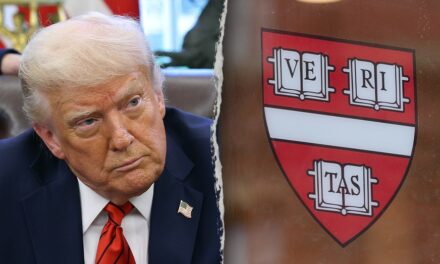In an alarming revelation, a groundbreaking study has surfaced that highlights the emergence and proliferation of what is termed an ‘assassination culture’ among left-wing extremists in the United States during the presidency of Donald J. Trump. This new research, which has drawn significant attention from political analysts and social scientists alike, uncovers the worrying trends that may signal a shift in the political landscape of the nation.
The study, conducted by a team of researchers focusing on political violence, examines the impact of cultural and political rhetoric on extremist ideals. With the polarization of American politics at an all-time high, researchers sought to understand how political discourse during Trump’s presidency influenced radical behavior within specific groups.
As the analysis unfolds, it references a confluence of factors, including the divisive rhetoric used during the 2016 presidential campaign and the subsequent years of the Trump administration. The study focuses on social media platforms as breeding grounds for extremist ideas, suggesting that the environment created by both political leaders and influencers played a crucial role in fostering a culture that glorifies the idea of political violence and even assassination.
Historically, the term ‘assassination culture’ implies a normalization of violence as a means to achieve political ends. In this context, it indicates a significant shift in perception, where some left-leaning factions may view violence against political adversaries as not only acceptable but a potentially honorable course of action. Researchers assert that this mindset is dangerous and could have severe implications for public safety and democratic institutions.
The study highlights various incidents where rhetoric crossed into incitement. For example, high-profile incidents, including calls for action against conservative figures and the increased targeting of law enforcement agencies during protests, exemplify this trend. The researchers provide evidence suggesting that these actions were amplified through social media channels, reverberating through echo chambers where ideological conformity reigns supreme.
Moreover, the research draws parallels to past political upheavals where assassination was not an uncommon expression of political extremism. By tracing the historical roots of political violence in the U.S., especially during tumultuous periods of civil unrest, the authors argue that current events reflect an awakening of similar sentiments, albeit within a contemporary framework markedly influenced by the digital age.
As the far-right and far-left factions within American politics become increasingly organized, the study posits that this ‘assassination culture’ is not isolated to a single group but rather grows within a larger ecosystem of radicalization that spans multiple political spectrums. It serves as a warning that if such attitudes continue to proliferate unchecked, American democracy could face unprecedented threats as societal norms break down.
Furthermore, socio-political ramifications extend beyond mere threats to individuals. The researchers speculate that the spurring of violent ideologies could potentially disrupt peaceful protests and civil discourse, leading to an escalation of confrontation between opposing ideological groups. Tensions have boiled over in various cities, as seen during the protests following George Floyd’s death and the Capitol riots of January 6, 2021, both of which displayed the horrors of political violence.
In light of these findings, political leaders from various backgrounds are urged to reconsider their approach to rhetoric during their campaigns and public statements. The intertwined nature of social media and politics demands a more responsible use of language that promotes dialogue rather than divisiveness. Political scientists note that leaders have a unique influence on their followers, which, if wielded carelessly, can result in maladaptive behavior among the masses.
The implications of the study are particularly relevant amid ongoing conversations regarding the safety and security of public officials and activists. With threats against political figures rising, several have called for enhanced security measures and a reevaluation of the legal frameworks surrounding political speech. Advocates suggest an urgent need to reinforce the principles of peaceful resolution as a cornerstone of American democracy.
Several analysts point out that this study should not only serve as a wake-up call for political leaders but also for the general populace. Citizens are encouraged to remain vigilant against the normalization of violence in political discourse and to actively participate in conversations about democratic values grounded in mutual respect.
While addressing concerns about political violence and potential radicalization, the study does emphasize that the majority of grassroots movements are rooted in the advocacy for social justice and equality. Still, it cautions that as the stakes rise, fringe elements can lure individuals into radical ideologies, convincing them that extreme measures are the path to achieving their goals. This dichotomy poses a complex challenge for mainstream movements, which face the critical task of distancing themselves from extremist behavior.
The researchers conclude that in order to mitigate the potential threats posed by this growing ‘assassination culture,’ a collective effort must be made across all political divides to restore civility in American discourse. In a system that thrives on the exchange of ideas, it is imperative to foster an environment where debate is encouraged and violence is unequivocally rejected.
As discussions emerge surrounding the future of political communication and shared societal values, this study serves as a crucial point of reference for all stakeholders involved. Whether through community engagement, educational initiatives, or public policy reform, the call to action is clear: A commitment to uphold the ideals of democracy is essential in preventing violence from becoming an accepted component of political struggle.
This study’s findings resonate profoundly, calling attention to the societal fractures within the U.S. political landscape. The research raises significant questions about how societies can cultivate resilience against radicalization while upholding the fundamental tenets of democracy. The ongoing evolution of political culture in America will undoubtedly remain a point of focus, with this study’s insights continuing to shape discussions on the necessary steps forward.
As the nation navigates through these tumultuous times, the responsibility lies with both leaders and citizens to engage in constructive dialogue and to challenge the narratives that encourage hate and violence, ensuring that the future of American politics is grounded in peace rather than conflict.































